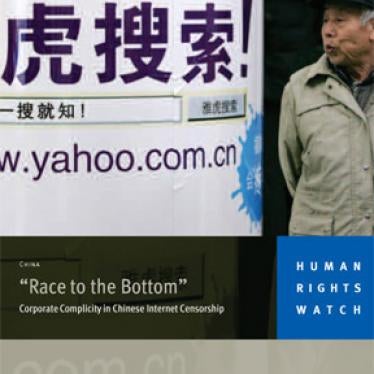HONG KONG - Who says the Chinese government isn't susceptible to pressure? Its last-minute suspension of an order requiring the pre-installation of Internet filtering software called into question the popular notion that China is chronically impervious to pressure.
The "Green Dam Youth Escort" software attracted ire inside and outside China due to assessments by both independent analysts and computer industry representatives that the program, pitched as a tool to block pornographic content from personal computers, represented a much more sinister threat to privacy, choice and security.
After weeks of scathing criticism from some of China's nearly 300 million netizens, unprecedented opposition by foreign computer manufacturers and international business associations, and a threat from both the United States trade representative and U.S. secretary of commerce that Green Dam might prompt a World Trade Organization challenge, Beijing blinked.
In the evening of June 30, the Chinese government issued a statement via the official Xinhua News Agency that the pre-installation order had been delayed.
The dispute over Green Dam is far from over and represents just one battle in a wider campaign against the Chinese government's ongoing efforts to fortify and improve its "Great Firewall" of Internet censorship and surveillance.
But China's move to at least temporarily shelve its Green Dam plans demonstrates that broad pressure by foreign governments, trade organizations and private industry has the power to influence Beijing on matters involving clearly-defined international principles.
U.S. Trade Representative Ron Kirk and Commerce Secretary Gary Locke deserve kudos for extending their criticism of Green Dam beyond that of regulatory transparency and W.T.O. compliance to concerns that the software threatened "internationally recognized rights to freedom of expression."
That helped illustrate the often close relationship between human rights and other national interests and provides a template for how other countries should approach China on such issues.
For far too long, foreign governments - particularly the United States and the European Union - have surrendered robust, direct engagement with the Chinese government on important human rights issues in favor of toothless human rights "dialogues."
These dialogues are the product of a school of thought according to which direct pressure is at best unhelpful and at worst counterproductive and culturally inappropriate. The net result has been to let Beijing off the hook in producing substantive responses to concerns about serious and ongoing human rights abuses.
The response to Green Dam shows that there's room to talk about human rights across all dialogues, be they economic, environmental or strategic.
The need for results is pressing. In recent weeks, the Chinese government has intensified attacks against dissent and civil society activists and signaled fresh contempt for human rights norms embodied in China's Constitution, the government's new National Human Rights Action Plan unveiled on April 13, 2009 and the Universal Declaration of Human Rights.
Since June 1, the Chinese government has effectively disbarred more than a dozen prominent civil rights lawyers, made a mockery of the U.N. Human Rights Council's Universal Periodic Review process and formally arrested a prominent rights activist, Liu Xiabo, on trumped-up "subversion" charges after illegally detaining him for more than six months.
These unsettling moves, less than a year after China's much-touted "coming out party" of the 2008 Beijing Olympics, suggest that the current template for human rights engagement with China is in dire need of an overhaul.
Engaging in bilateral economic and trade relations devoid of human rights considerations with authoritarian governments definitely raises the risk that foreign firms and investors will be complicit in human rights abuses.
The Green Dam controversy shows that concerted and diverse opposition to rights abuses accomplishes change. With this positive precedent in mind, meaningful improvement on a host of other issues in China - ranging from the rule of law to media freedom - could well be within reach.
Phelim Kine is an Asia researcher for Human Rights Watch.







